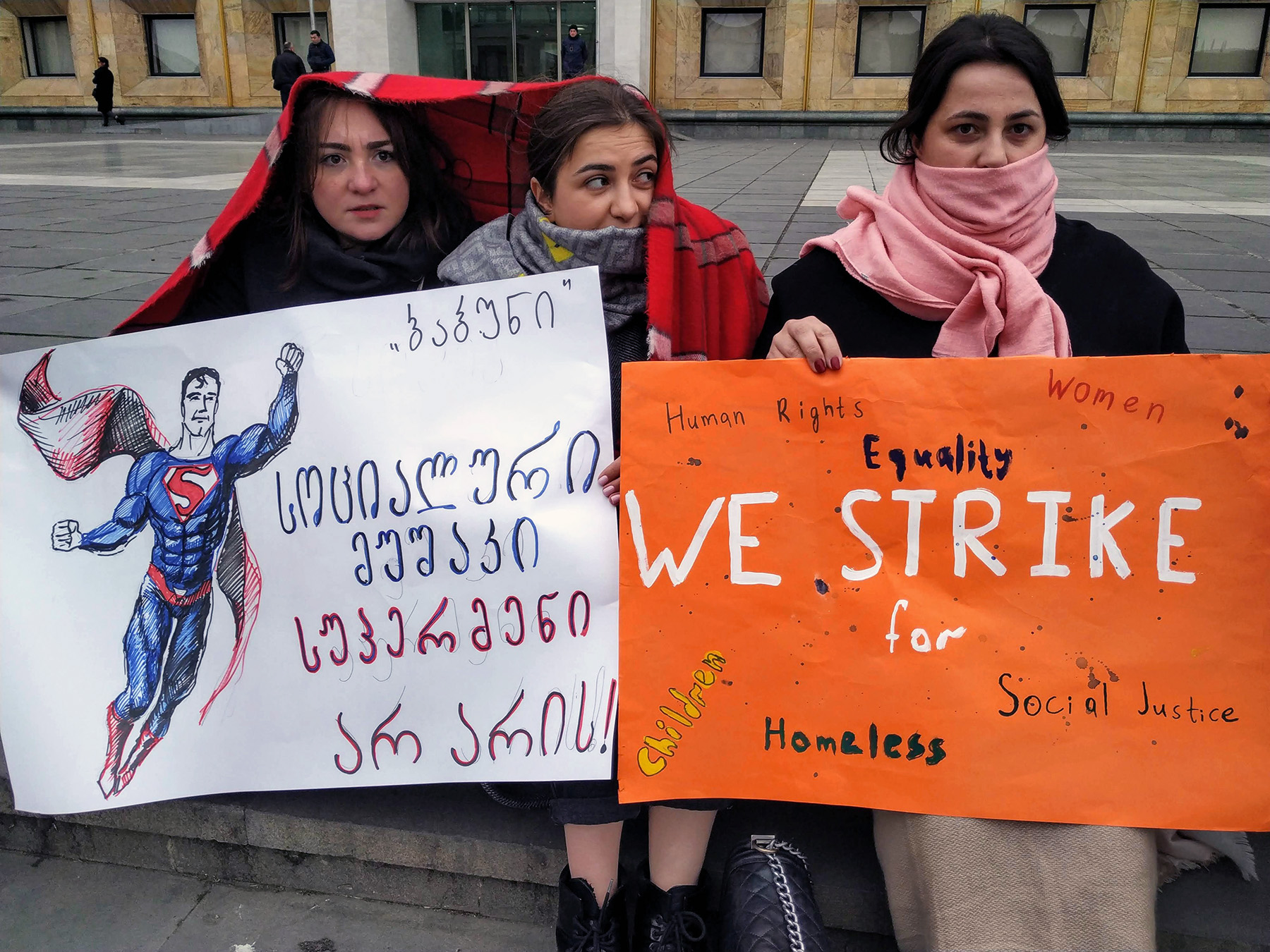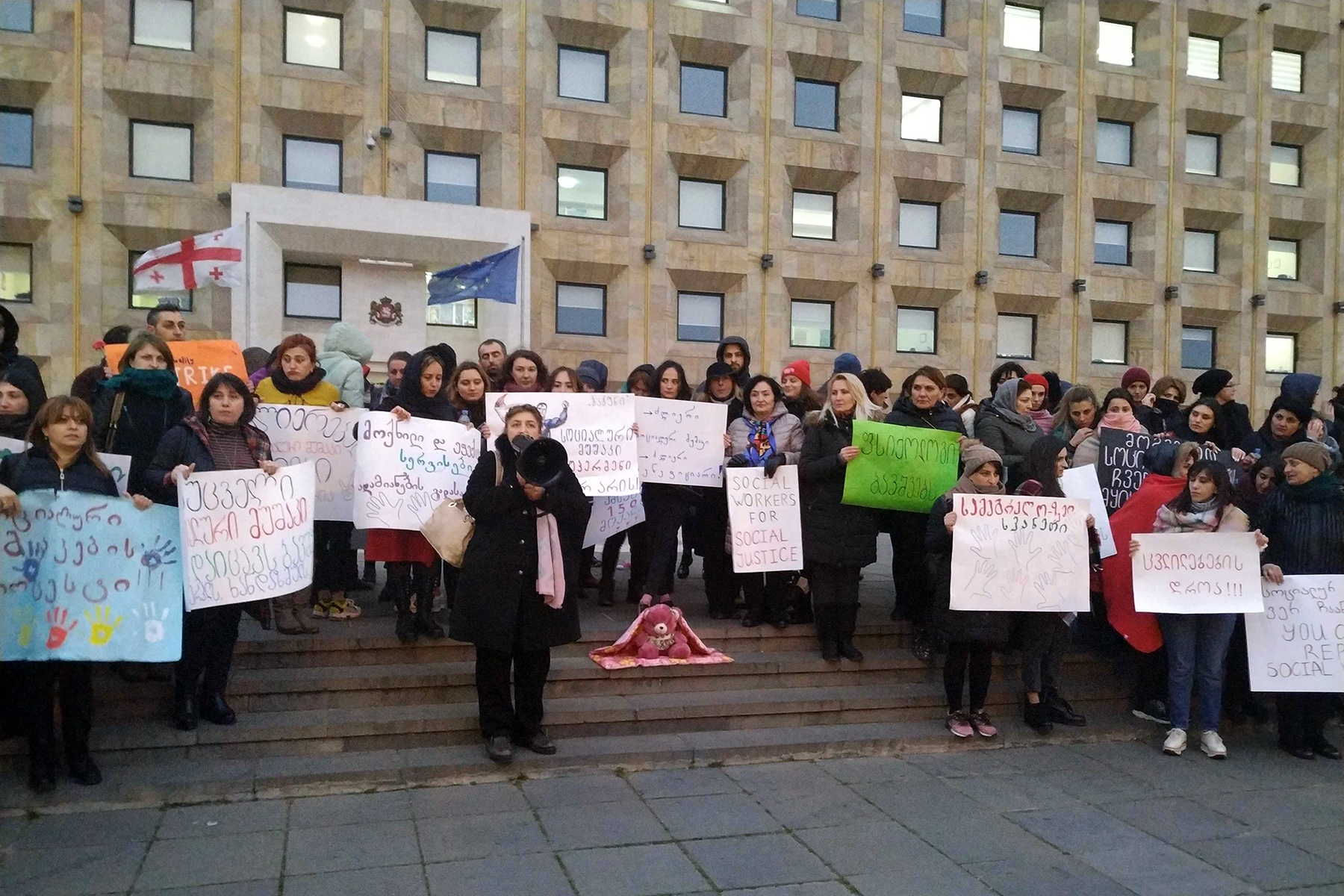

Georgia’s social workers have returned to work after a week-long strike, announcing that the government had ‘partially’ met their demands.
In a statement on Facebook on Tuesday, Social Workers for Systemic Changes, a group set up to represent the striking social workers, said that the Ministry for IDPs, Labour, Health and Social Affairs had agreed to free them of administrative duties and provide the Social Service Agency with 30 vehicles to visit beneficiaries.
They had previously had to visit beneficiaries using their own vehicles and at their own expense.
Additionally, they said the agency had agreed to hire 12 lawyers and one psychologist to help them. The group said they expected parliament to oversee the financing of these.
The group also told local media that the ministry had simplified procedures with the Samkharauli National Forensic Bureau, something which was among their demands before striking.
Nino Odisharia, the head of the ministry’s Social Welfare Department, confirmed to OC Media that administrative work would no longer be a part of social workers’ duties and that communication with the forensic agency would be conducted digitally.
The striking social workers had complained that they were forced to spend time travelling to and from the agency to obtain signatures, calling the practice ‘outdated’ and ‘unbelivable’.
Additionally, she said job openings for 50 new social workers would be announced this year, as well as a psychologist and two lawyers in Tbilisi, as well as one lawyer for each region in Georgia.
Odisharia said the 30 promised vehicles would be procured by the end of May, and that social workers would be reimbursed for taxi services when cars were not available.
She also stated that they planned to examine the working conditions and infrastructure of regional branches of the Social Service Agency and announce a tender for rehabilitation work.
In their statement on Tuesday, Social Workers for Systemic Changes said that there was still no agreement on their demands for higher wages or stripping them of their obligation of representing beneficiaries in court.
The group announced they would form a union to ‘continue their fight’ over the unresolved issues.
A ‘failing’ system
Almost all of Georgia’s social workers, around 180 people, went on strike on 25 March, after mandated mediation sessions between them and their employers, the Ministry of Health, Labour, and Social Affairs, failed to find a compromise.

They demanded more resources, claiming the country’s social care system failed to ensure adequate services to vulnerable groups.
The possibility of a strike was first raised by disgruntled social workers following the death of a four-year-old girl who was under their care.
The child, formerly in foster care, was found dead on 22 January in a shack belonging to her biological mother. As a result, four social workers were fired and one resigned.
The organisers of the strike responded that it was a matter of ‘pure luck’ that there were not more deaths due to the lack of resources at the agency’s disposal.
Social Workers for Systemic Change lambasted Health and Social Affairs Minister Davit Sergeenko for claiming on the first day of their strike that the social care system would not be hindered by their absence.
Speaking to local media, Sergeenko noted on 25 March that by going on strike, the social workers had ‘made their choice’.
Initially, the ministry responded to the strike by saying they were hiring over 30 new social workers.
After two days, the ministry also promised to raise the wages of social workers to ₾1,200 ($450) by 2020 and ₾1,500 ($560) by 2022, to provide each region with one car, and to add specially trained social workers to represent beneficiaries in court.
One of the demands of the striking social workers was that they would no longer be obliged to represent beneficiaries in court.
In their statement announcing the end of their strike on Tuesday, Social Workers for Systemic Changes said they had continued to consult beneficiaries over the phone during their protest.







